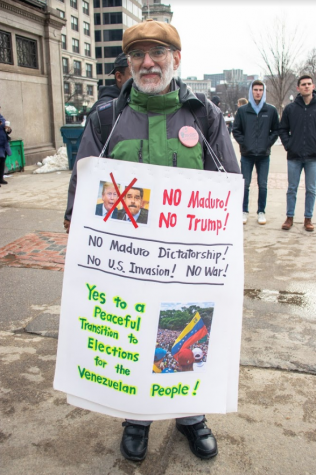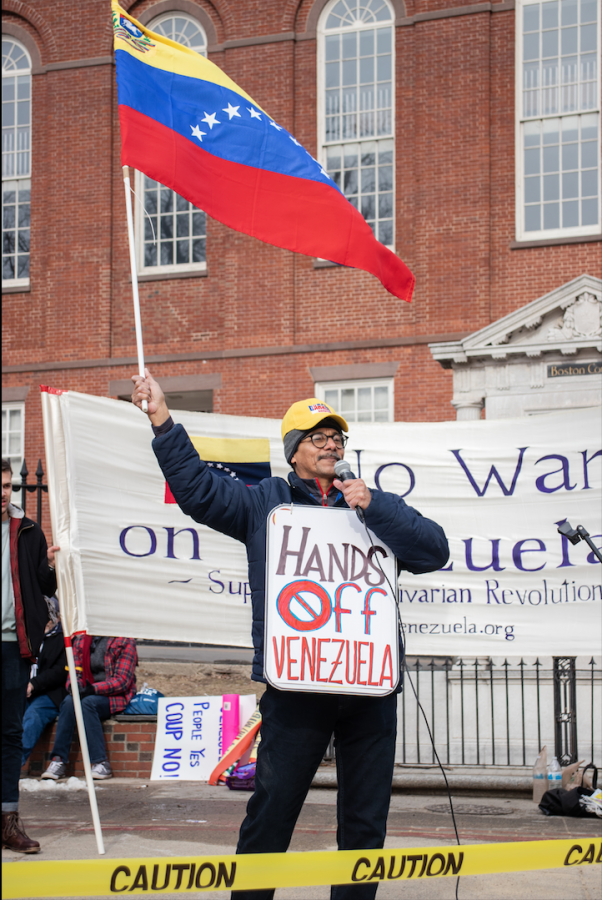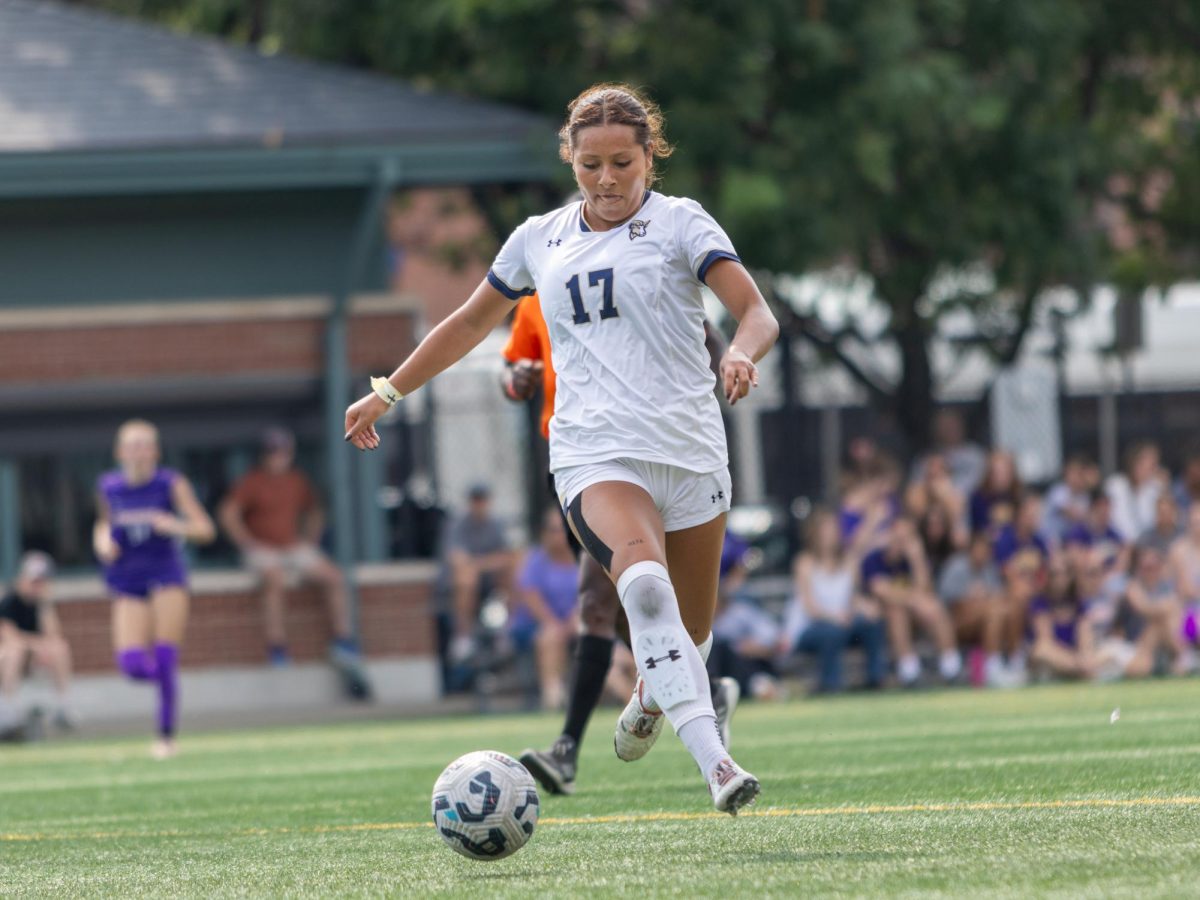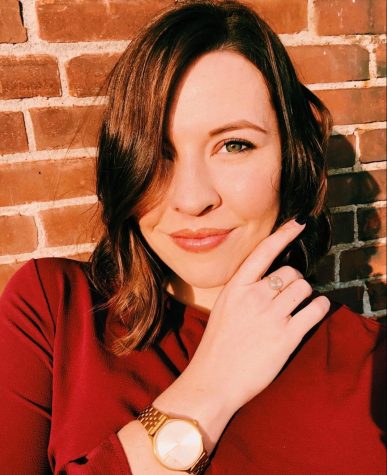On Jan. 23, Juan Guaido declared himself the interim president of Venezuela. Shortly after, President Trump released a statement declaring Maduro’s presidency ‘illegitimate’ and officially recognizing Guaido as the interim president of Venezuela. In the statement, Trump pledged to “continue to use the full weight of United States economic and diplomatic power to press for the restoration of Venezuelan democracy.”
Exactly one month later this past Saturday, protesters gathered in The Boston Common in opposition of U.S. involvement in Venezuela, calling it an attack on the country’s sovereignty. Among the protesters was Jill Stein, the Green Party’s nominee for President of the United States in the 2012 and 2016 elections.
“We can make sure that Venezuela deals with the crisis it’s feeling right now through peaceful means,” said Stein to The Suffolk Journal. “Most people around the world are actually in countries that support a peace process and oppose this seizure of the government by Guaido.”
Stein believes that the U.S. must lift the sanctions it has imposed on Venezuela as it is doing more harm than good to the country that is already experiencing a severe humanitarian crisis.
“I think the U.S. should provide aid through legitimate channels instead of this Trojan horse for illegal weapons which is what it’s going to be used for,” said Stein to The Suffolk Journal.
The protesters that had gathered in solidarity with Venezuela were unified in their call for the U.S. to keep their ‘hands off Venezuela.’ However, the group was clearly split on what exactly that meant. Many held signs showing clear support of Maduro, while others denounced him. Some chose not to pick a side one way or another.

When John Blumenstiel, the membership director of the Green Rainbow Party, was asked what side he supported, he responded, “It’s hard to judge. All I know is that the United States should not be involved in other countries internal disputes. It should be left up to those countries to figure that out.”
The protest, held less than a block from Suffolk’s Sargent Hall, quickly attracted attention from the public.
Maria Carrasquero, an immigrant from Venezuela, became visibly upset when she arrived at the protest. Having lived under Maduro’s dictatorship for many years and experiencing the political turmoil firsthand, she felt that many of the protesters at Saturday’s rally were out of touch with the reality of the crisis in Venezuela.
“I am 100 percent sure that more than half of these people don’t even know where Venezuela is on a map. I’m sure that they don’t know what’s actually going on there or what the president has done,” said Carrasquero to The Suffolk Journal. “Venezuela has been under a dictatorship since I was born, and they’ve been ruining the country ever since they got into power. I don’t understand how these people can talk about it as if they know what’s going on when they don’t. I want them to go there and see how people are living.”
With family now scattered across the globe and grandparents still living in Venezuela, Carrasquero supports the United States’ involvement in her home country.
“That’s why we’re doing all those marches and rallies. We want the world to see what is going on so they can help us because we clearly don’t have the necessary equipment to do it ourselves,” said Carrasquero to The Suffolk Journal. “We don’t have the military- the military is with the government, there’s no way for us to get out of this alone.”
Dahiana Duarte was on her way home from grocery shopping when she noticed the protest and stopped to show her support. With family from Uruguay, she supported the notion of the U.S. staying out of the country.
“In Latin America, people feel very strongly about the United States not invading, because of their history of supporting dictatorships,” said Duarte in an interview with The Suffolk Journal. “Trump supporting the newly declared President of Venezuela takes the attention away from the bigger picture, instead of focusing on what the real issue is.”
Steve Karian was one of few protesters holding a sign opposing Maduro.
“I have always been anti-imperialist and I’m still against any sort of U.S. invasion. It would only mean disaster. But being against U.S. invasion and U.S. imperialism does not mean supporting dictatorships,” said Karian to The Suffolk Journal. “If the U.S. goes into Venezuela, Maduro gets an instant victory. He gets an excuse to say he’s a victim. He gets an excuse to unite his army and to get international support for his cause.”
Jose Aleman, a volunteer at Boston’s Venezuela Solidarity Committee immigrant from El Salvador, attended the protest in solidarity and could be seen waving the Venezuelan flag.
“I’m not only an immigrant, but also a father, and a teacher. I pay my taxes but it doesn’t end there. I could do more,” said Aleman to The Suffolk Journal. “I was telling my son as we were walking here, ‘I cannot fix the foreign policy of this government but I can show you how to raise a flag and raise your voice’ and maybe that is the only thing we can do for now, but it is a good step, and if you are strong enough to hold a flag and that’s all you can do, you’ve still done something.”
Aleman hoped that the protest would serve as a voice of reason and a display of true American values.
“There will be turmoil until the government does the right thing,” said Aleman to The Suffolk Journal. “The right thing is pretty simple, ‘Don’t do to others, what you don’t want others to do to you..Don’t invade others, if you don’t want to be invaded.’ ”




















